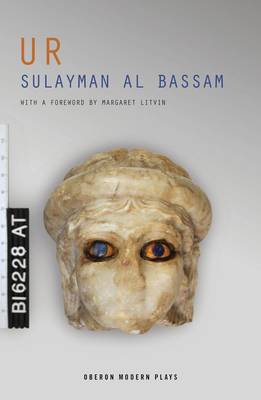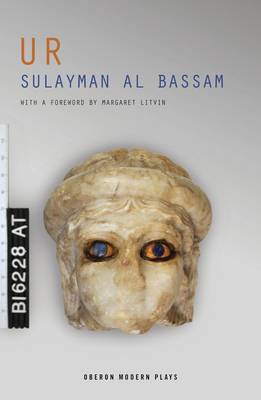
- Afhalen na 1 uur in een winkel met voorraad
- Gratis thuislevering in België vanaf € 30
- Ruim aanbod met 7 miljoen producten
- Afhalen na 1 uur in een winkel met voorraad
- Gratis thuislevering in België vanaf € 30
- Ruim aanbod met 7 miljoen producten
Zoeken
Omschrijving
In Ancient Sumeria, a woman's desire for sexual sovereignty and radical vision of civic plurality draws the anger and outrage of the male status quo and unleashes catastrophe onto her city and her body.
The seminal Lamentation for the Destruction of the City of Ur is the first poem written for a civic entity -- a city -- in the history of mankind. Writing scenes across multiple timelines that stretch from 2000 BC, to the European Imperialist fantasies of the late 19th Century, to the ISIS destruction of Palmyra in 2015, to a distorted Utopian vision of the future, Al Bassam's play is a riot of imagination and poetic archaeology, exploring themes of iconoclasm, civic space and feminine apotheosis. UR evokes the utopia and destruction of one of humanity's oldest cities, and is played by an ensemble composed of four Arabic actors working alongside four members of the Residenztheater ensemble.Specificaties
Betrokkenen
- Auteur(s):
- Uitgeverij:
Inhoud
- Aantal bladzijden:
- 96
- Taal:
- Engels
- Reeks:
Eigenschappen
- Productcode (EAN):
- 9781786825650
- Verschijningsdatum:
- 22/01/2019
- Uitvoering:
- Paperback
- Formaat:
- Trade paperback (VS)
- Afmetingen:
- 130 mm x 198 mm
- Gewicht:
- 90 g

Alleen bij Standaard Boekhandel
+ 51 punten op je klantenkaart van Standaard Boekhandel
Beoordelingen
We publiceren alleen reviews die voldoen aan de voorwaarden voor reviews. Bekijk onze voorwaarden voor reviews.








